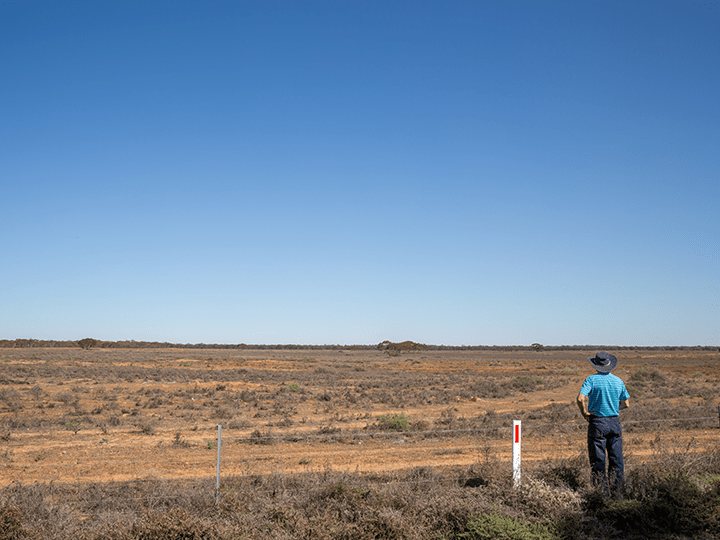Wagyu, fine wine and a common-sense approach to lending
Posted on 23/8/2019
Overview:
Earlier this week Justice Perram dismissed the landmark case against Westpac by Australia’s corporate regulator ASIC, on the grounds that even Australians who feast on Wagyu beef and fine wine every night, will forgo these kinds of luxuries to afford their mortgage. We discuss the findings from the case and the importance of gaining a holistic understanding of a home loan applicant's financial objectives, both now and in the future.
“I may eat Wagyu beef every day washed down with the finest shiraz but, if I really want my new home, I can make do on much more modest fare.”
Those are the words of Justice Nye Perram who, earlier this week handed down a ruling in the landmark case brought against Westpac by Australia’s corporate regulator ASIC.
While the implication that the average Australian looking to apply for a loan eats wagyu beef, washed down with a bottle of Grange each night is a little out of step with reality (and if isn’t, I’m eagerly awaiting my dinner invite), the fundamental principle creates an interesting narrative and legal precedent around the responsibility of banks when assessing expenditure details of loan applicants.
Given the current lending environment, which, due to subsequent interest rate cuts by the Reserve Bank, is ripe for anyone looking to buy their first home, investors looking for their next investment property or current home owners wanting to get a better rate, it’s important to understand both the context of this decision and its potential impacts for you as a loan applicant.
Responsible lending and the letter of the law
In March 2017, ASIC commenced civil proceedings against Westpac, alleging that the bank had breached responsible lending guidelines by using a household expenditure measure (HEM) in its automated assessment of more than 260,000 home loan applications between 2011 and 2015. ASIC alleged that the HEM benchmark underestimated true expenditure and resulted in Westpac providing loans to those who could not reasonably afford them.
Nearly 18 months later, Westpac admitted to these breaches and agreed to a $35 million settlement; however, in an unexpected turn of events, Justice Perram refused to approve the settlement on the grounds that it was unclear as to what law/s Westpac had actually breached and ordered that the case return to the courts.
Fast forward to earlier this week when Justice Perram handed down his finding, dismissing the case against Westpac on the grounds that the bank had not actually broken responsible lending guidelines.
Justice Perram found that although the HEM benchmark is not an estimate of actual living expenses he agreed with Westpac’s contention that it is ‘an estimate of the level of household expenditure that the consumer could reasonably be expected to spend to participate fully in society with a reasonable standard of living’ and that using this benchmark did not contravene the law.
Further to this, Justice Perram noted that, “the act requires a credit provider to ask itself only whether ‘the consumer will be unable to comply with the consumer’s financial obligations under the contract’ or, alternatively, whether the consumer ‘could only comply with substantial hardship’” and that an applicant’s declared living expenses would only be “necessarily relevant” to whether they could repay their loan if the assessment identified “some living expenses which simply cannot be foregone or reduced beyond a certain point”.
Which brings us back to wagyu and fine wine…
A common-sense approach
The undercurrent of the judgement put forth by Justice Perram is that when people take on a mortgage, they change their spending habits. The use of wagyu and fine wine analogy speaks to the fact that most Australians will forgo some luxury expenditures to ensure that they meet their loan repayments.
The application of the responsible lending act must therefore be applied with a common-sense approach. For example, if a person were to be dining each day on wagyu and fine wine but, upon taking on a mortgage, then struggle to put food on the table, that may constitute a breach of responsible lending practices. However, if the loan only requires a minor adjustment to expenditure that can be reasonably expected and does not cause the applicant to endure hardship to meet repayments, then there is no breach.
So, while Westpac may have not assessed loans the way that ASIC had expected it to (by using the HEM benchmark) this didn’t contravene responsible lending law. In response to losing the judgement, ASIC called the case a ‘test case’ and that it ‘took on the case against Westpac because of the need for judicial clarification of a cornerstone legal obligation on lenders’.
The implications for loan applicants
This case sets an important precedent for responsible lending moving forward. During the Financial Services Royal Commission, non-compliance with responsible lending laws was highlighted as a key issue among major lenders. In response, many lenders have, and continue to tighten standards, making it more difficult for those wanting to buy a residential property.
While the law will likely require further testing, this ruling should provide more clarity around responsible lending and show the industry that applying it properly really isn’t that hard.
At Perks Finance, our view is that responsible lending requires taking a whole of person view – understanding a client’s situation now, their current income and expenditures, what they can afford and where they want to be in the future.
“By working closely with you to understand your financial situation, personal and professional aspirations we will help you find the most suitable loan to meet your needs and we will also negotiate with lenders on your behalf,” explains Bruce Debenham – Director, Perks Finance
“We will apply our skill and expertise to ensure that your application will meet the requirements of all the lenders we deal with, making the process much easier for you.”
To find out more about the services Perks Finance can offer, contact Bruce Debenham on 08 8273 9223 or visit www.perks.com.au.
Related insights.

ATO Interest Charges Deduction Removed from July 2025
4/7/2025
Updated July 2025- Tax Advisory
Effective 1 July 2025, the Australian Taxation Office (ATO) will no longer allow taxpayers to claim a...
Read more.

EOFY 2025: Essential Tax Planning Tips for Private Business Owners
5/5/2025
Updated June 2024 - Tax Advisory
With the end of financial year fast approaching, there are key considerations for the current 2024-25 tax...
Read more.

S.A. State Government On-Farm Drought Infrastructure Rebate Scheme Now Open
24/4/2025
Agribusiness
S.A. primary producers can now access up to $20k through the On-Farm Drought Infrastructure Rebate Scheme. Learn...
Read more.
Want to receive our insights?
Sign up to receive important financial updates, useful tips, industry trends and whitepapers.